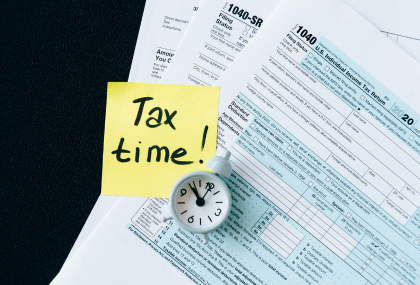
Understanding the Basics of Transaction Tax in Texas
Anyone involved in real estate transactions in Texas should understand how transaction taxes work, especially in growing markets like Mansfield. A transaction tax, sometimes referred to as a transfer tax, is a charge that may be applied during the sale or transfer of real property.
While Texas does not impose a statewide real estate excise or transfer tax, local fees or administrative costs may be associated with property transfers. These fees are often calculated based on the sale price of the property and can influence the total cost of buying or selling a home.
Unlike states with fixed excise tax rates, Texas follows a decentralized model, allowing counties or municipalities like Mansfield to apply their own recording or administrative fees in certain cases. This means real estate professionals and property owners must know local rules and regulations that could impact their transactions.
Understanding the details of these transaction-related costs helps buyers and sellers stay compliant, avoid surprises at closing, and manage their budgets more effectively. Staying informed about the latest local requirements ensures smoother transactions and supports smart financial planning in Mansfield’s dynamic real estate market.
Key Differences Between Sales Tax and Transaction Tax
Understanding the key differences between sales and transaction taxes is essential when evaluating real estate costs in Mansfield, TX. Sales tax is typically applied to general retail purchases and added at the point of sale, making it clearly visible to the customer.
In contrast, transaction tax, often referred to as a transfer or excise tax in real estate, is applied to specific transactions, such as the transfer of property ownership. This tax is usually calculated as a percentage of the sale price and is often embedded in the transaction process rather than being itemized separately at checkout.
Sales tax is collected by retailers and submitted to the state. On the other hand, transaction taxes are generally paid by sellers or handled by closing agents during a real estate transaction. This distinction means that transaction taxes are more focused on the legal and financial details of the property transfer, rather than everyday consumer spending.
Understanding these differences allows real estate professionals in Mansfield to make quicker and more accurate financial calculations during closings and ensure compliance with local and state regulations.
If you have questions about how transaction taxes apply to real estate in Mansfield, contact Southern Hills Home Buyers.
Exploring the Role of Transaction Taxes in Public Revenue Generation
Transaction taxes play a significant role in generating revenue for local governments, especially in real estate transactions in Mansfield, TX. These taxes are imposed on certain goods and services, including property transfers, and help fund local programs and infrastructure projects.
In Mansfield, transaction taxes contribute to the community’s financial well-being by supporting public services such as schools, transportation, and emergency response. Accurate calculation and reporting of these taxes are essential to ensure real estate transactions are legally compliant and efficiently processed.
Reducing the burden of income taxes can streamline property sales, but the proper application of transaction taxes remains critical to supporting local needs. Real estate professionals and other stakeholders contribute to the city’s economic growth by properly managing and remitting transaction taxes, helping maintain fairness and accountability in the system.
Anyone involved in Mansfield real estate should be familiar with local transaction tax regulations. These rules directly influence closing costs and affect how public funds are distributed for essential community improvements.
How Recent Legislation Affects Transaction Tax Rates in Texas
Recent legislation has introduced notable changes to transaction tax rates that impact real estate transactions in Mansfield, TX. Both buyers and sellers should understand these updates, as they may affect the total cost of property transfers. The new laws aim to simplify the calculation of transaction taxes by adjusting rates according to property value brackets.
As a result, tax amounts on some Mansfield properties may differ from those in previous years. This shift makes it easier for real estate professionals and clients to estimate costs more accurately. These legislative updates are part of broader efforts across Texas to streamline tax processes and improve transparency.
The revised rules provide clearer guidance on exemptions and deductions, helping residential and commercial property owners better manage their financial responsibilities. Because of these changes, real estate agents, attorneys, and other professionals in Mansfield must stay informed to offer accurate guidance during legal property transactions and help clients maximize their financial outcomes.
Comparison: Federal vs State-Level Transaction Taxes Explained

Understanding federal and state-level transaction taxes is essential when evaluating real estate transactions in Mansfield, TX. At the federal level, excise taxes are typically applied to specific goods such as gasoline, alcohol, and tobacco. These federal taxes do not apply to real estate transactions.
However, it is still helpful to understand how federal tax systems work, as this provides context for how states structure their tax policies. In Texas, there is no statewide transaction or excise tax specifically on real estate sales. Any fees or taxes applied to property transfers usually originate from local governments or are tied to administrative and recording costs specific to the transaction.
Homeowners in Mansfield should be aware that local rules and regulations often have more impact on property sales than federal taxes. For example, while selling a home by owner may seem straightforward, it can involve additional fees, documentation requirements, and tax considerations that are best addressed with the help of a real estate or tax professional.
By focusing on local transaction requirements instead of federal tax policies that do not directly apply, buyers and sellers in Mansfield can stay compliant, avoid surprises, and ensure a smoother real estate transaction process.
The Impact of Transaction Taxes on Small Business Operations
Transaction taxes can have a significant impact on small businesses, especially in Mansfield, TX, where real estate transactions often involve complex financial considerations. For small real estate businesses, understanding how to calculate transaction taxes is essential to remain compliant with local regulations and maintain profitability.
Failure to understand or accurately apply these taxes can lead to unexpected expenses, disrupt cash flow, and potentially limit business growth. To manage transaction taxes effectively, business owners need access to accurate information and user-friendly tools that simplify the calculation process.
It is equally important to stay current with changes in local tax policies. Small business owners should consult with tax professionals when needed to reduce financial risk and make informed decisions. This proactive approach can help them better navigate Mansfield’s competitive real estate market and support long-term business growth.
Importance of Compliance with Transaction Tax Regulations
Ensuring compliance with transaction tax regulations is essential in real estate transactions in Mansfield, TX. These taxes, which apply to specific goods and services, including certain property transfers, are vital in supporting the local economy.
Following the correct procedures ensures that all parties fulfill their financial responsibilities properly and on time. Understanding current rates, applicable exemptions, and deductions is important for calculating transaction taxes accurately. Real estate agents and home sellers should rely on trusted tools or consult with qualified tax professionals.
Accurate filing not only helps real estate transactions proceed smoothly but also contributes to the integrity of the local tax system by generating revenue for community services. Failing to comply with transaction tax requirements can lead to penalties, interest charges, or audits. This highlights the importance of maintaining clear documentation and accurate financial records for every property sale or transfer in Mansfield.
Common Mistakes to Avoid When Filing Transaction Taxes
Avoiding common mistakes is key to ensuring a smooth and accurate transaction tax filing process for real estate deals in Mansfield, TX. Errors in this area can lead to delays, fines, or missed financial opportunities.
One frequent mistake is miscalculating the taxable amount due to incorrect property valuations or overlooked transaction details. Failing to consider available exemptions, credits, or deductions can also result in overpaying or underpaying the tax.
Another issue is not staying current with changes in local or state tax regulations. Many individuals filing transaction taxes are unaware of recent updates, which can lead to noncompliance and potential penalties.
Documentation errors, such as incomplete forms or missing signatures, can also raise red flags with tax authorities and slow the approval process. To avoid these pitfalls, it is important to double-check all paperwork, ensure calculations are accurate, and consult with a real estate or tax professional when needed.
By avoiding these common mistakes, buyers and sellers in Mansfield can ensure accurate transaction tax filings and a more efficient property transfer process.
How to Calculate Transaction Tax for Businesses in Mansfield, TX
Understanding local regulations and using the right tools can simplify the calculation of transaction tax for real estate transactions in Mansfield, TX. Businesses involved in property sales must ensure accurate tax calculations to remain compliant and avoid penalties.
To begin with, it is important to know the current transaction tax rates and identify any exemptions or special provisions that apply under Texas law. Specialized software can help streamline the process by automatically applying the latest rates and updates.
Businesses should also consult with local tax professionals or use online resources provided by the City of Mansfield and the State of Texas to confirm their obligations. Staying informed about tax law changes and leveraging digital tools makes calculating transaction taxes more efficient and reliable.
By following these steps, businesses in Mansfield can meet regulatory requirements and complete real estate transactions with greater accuracy and confidence.
A Step-by-Step Guide to Filing Your Transaction Taxes in Mansfield, TX
Filing transaction taxes for real estate transactions in Mansfield, TX, can be straightforward when you follow the correct steps. Proper documentation, accurate calculations, and an understanding of local rules are key to avoiding delays or penalties.
1. Gather Required Documents
Begin by collecting all documents related to the property sale, such as the sales contract, closing disclosure, and any addenda. These materials will help determine the sale price and confirm the details needed to calculate your transaction tax.
2. Understand Local Regulations
Familiarize yourself with tax regulations specific to Mansfield. Although Texas does not impose a statewide transaction tax on real estate, local fees or administrative costs may apply. Check with the City of Mansfield or a local tax authority for current rates and rules.
3. Calculate the Transaction Tax
Determine how much tax you owe by applying the correct local rate to the property’s sale price. Be sure to account for any available exemptions, adjustments, or administrative fees.

4. Complete and Submit Required Forms
Fill out all required tax forms accurately, and include any supporting documentation. Double-check for missing information or signatures that could delay processing.
5. Submit Payment on Time
Make your payment by the deadline set by the local authority. Late payments may result in penalties, interest, or enforcement actions.
6. Retain Records
Keep copies of all submitted documents and receipts for your records. This is important in case of an audit or future real estate transactions.
By following these steps carefully, you can meet Mansfield’s transaction tax requirements and avoid unnecessary complications. If you need assistance or have questions, Southern Hills Home Buyers can help you.
Expert Tips for Managing Your Business’s Transaction Tax Obligations
With the help of expert guidance, it becomes easier to understand how to calculate transaction-related taxes for real estate deals in Mansfield, TX. It is essential to stay informed about local tax regulations and any recent changes that may affect real estate transactions if you want to manage your business’s transaction tax obligations effectively.
Using tools that calculate transaction taxes can streamline the process and help ensure accuracy and compliance with Mansfield’s tax laws. Working with an accountant with expertise in Texas real estate taxes can prevent costly mistakes and reduce the risk of financial penalties.
Businesses can also more efficiently meet reporting requirements by maintaining detailed transaction records and reviewing them regularly. Proactive financial management makes it easier to estimate transaction taxes accurately and supports better budgeting for real estate projects in Mansfield.
Strategies for Minimizing Your Business’s Overall Tax Liability
To avoid overpaying transaction taxes on real estate deals in Mansfield, TX, businesses should take a strategic and proactive approach to tax planning. Companies can reduce potential liabilities by leveraging technology and understanding local tax regulations.
Using specialized software for transaction tax calculations can ensure accuracy and compliance with Mansfield’s specific tax codes, helping to prevent costly errors. Staying informed about changes in local tax laws allows businesses to respond quickly and take advantage of any applicable exemptions or deductions.
Partnering with experienced tax professionals who understand Mansfield’s real estate tax landscape can further streamline your approach. In addition, maintaining thorough records of all transactions provides strong documentation to support claims for deductions or credits. This not only lowers your overall tax burden but also improves operational efficiency.
Navigating Complexities in Multi-State Transaction Tax Compliance
Navigating the complexities of multi-state transaction tax compliance, particularly for real estate transactions involving Mansfield, TX, requires a clear understanding of how tax laws vary across state lines. Using advanced technology and gaining insights into local tax regulations can simplify the process of calculating transaction taxes accurately.
Texas has its own rules regarding transaction-related fees and deductions, which real estate professionals must understand. When handling interstate deals, it is also important to consider how these rules interact with those of other states. Implementing automated systems to manage diverse tax requirements helps stakeholders determine the correct tax amounts more easily.
Collaborating with knowledgeable tax professionals and staying informed about legislative changes are key to ensuring compliance and avoiding errors during property transfers. These strategies make it easier to manage multi-state real estate transactions that include properties in Mansfield, Texas, and help businesses remain accurate and efficient in their tax reporting.
Case Study: Successful Management of Excessive State Taxes

In a detailed case study on the effective management of excessive state taxes during real estate transactions in Mansfield, TX, we examine how innovative strategies have helped streamline the transaction tax calculation process. Several real estate agencies have successfully navigated the complexities of tax compliance by adopting advanced software solutions specifically designed for real estate professionals.
These tools automate the process, ensure compliance with Texas regulations, and significantly reduce the likelihood of human error. As a result, time is saved, and costly mistakes are avoided. This approach has proven especially valuable for agents managing high-value transactions, where accurate tax assessments are critical.
By integrating these systems, Mansfield real estate firms can handle transactions more efficiently and reduce the risk of penalties due to miscalculations or missed filing requirements. This strategic use of technology demonstrates the value of forward-thinking tax management in a fast-paced and highly regulated industry.
Evaluating Professional Services for Efficient Tax Management
Hiring professionals to manage transaction taxes for real estate deals in Mansfield, TX, can lead to faster, more accurate results. Local tax regulations are often complex, and qualified tax experts can help you understand and comply with all relevant rules.
Transaction taxes can be difficult to navigate, but experienced professionals know where to identify potential savings, deductions, and credits that may reduce your overall tax liability. Using specialized software and digital tools, these experts can perform calculations more efficiently and reduce the risk of costly errors or penalties.
Real estate professionals in Mansfield stay current on changes in tax laws that may impact transactions. This knowledge offers clients peace of mind, ensuring that all aspects of tax compliance are managed properly. With expert support, buyers and sellers can focus on their core objectives without being burdened by complicated tax requirements.
The Future of Transaction Tax Policies and Their Economic Implications
The future of transaction tax policies, especially in the context of real estate transactions in Mansfield, TX, is set for significant transformation with far-reaching economic effects. As local governments look to streamline revenue collection, advances in digital technology are making transaction tax processes more efficient and accurate.
With increased reliance on automated systems, the likelihood of human error decreases, improving the experience for both taxpayers and government administrators. Mansfield officials are exploring flexible tax strategies that can adapt to evolving economic conditions while ensuring that public revenue from property sales is distributed fairly.
These forward-thinking policies aim to improve transparency, reduce administrative costs, and create a more efficient real estate environment. As a result, buyers and sellers may find it easier to complete transactions, encouraging a more dynamic market and allowing for better financial planning.
Other municipalities can note how Mansfield integrates technology into its tax systems as a model for how automation can support effective economic policy. Even during economic change, local governments continue to prioritize smarter, more responsive tax management. The evolution of transaction tax frameworks reflects this commitment to modernization and fiscal responsibility.
Looking to sell your home fast and without the stress? Whether you want to avoid repairs, skip agent fees, or simply want a smooth process, Southern Hills Home Buyers has you covered. As trusted cash home buyers in Garland, we make fair cash offers, take care of the paperwork, and close on your timeline. If you’re searching for a reliable company that buys homes in Pasadena, give us a call at (214) 225-3042 for a no-obligation offer. Let’s make selling your home simple—get started today!
Helpful Dallas Blog Articles
- Sell Your Mansfield, TX Home By Owner
- Mansfield, TX: Top Neighborhoods For Real Estate And Areas To Avoid
- Effective Strategies To Prevent House Foreclosure In Mansfield, TX
- Effortless Excise Tax Calculation For Mansfield, TX Real Estate Transactions
- Discover Mansfield, TX Exciting Activities
- Selling An Inherited House In Mansfield, TX
- Selling Your Home By Owner In Mansfield, TX
- Affordable Housing Options In Mansfield, Tx: Your Guide To Budget-friendly Living
- Is Mansfield, TX, Safe For Homebuyers?
- Top-rated Property Management Experts In Mansfield, TX

| ECONOMIC EFFECTS OF TAXATION | SALES AND USE TAX | GENERAL SALES TAX | INCOME | PAYCHECK | INCOME TAX |
| INCOME TAXES | TARRANT COUNTY, TX | TARRANT COUNTY, TEXAS | TARRANT COUNTY | PROPERTY TAXES | PROPERTY TAX |
| BANK | MONEY | CUSTOMERS | ZIP CODES | USE TAX | U.S.A. |
| POINT OF PURCHASE | BUDGETING | WASHINGTON | VIRGINIA | EASE OF USE | PAYMENTS |
| LOOKUP | SALES TAX RATE | SALES TAX RATES | AND LOCAL TAXES | STATE SALES TAX | THE SALES TAX |
| TAX RATE IS | TEXAS SALES TAX | SALES TAX CALCULATOR | TAX RATE IN | STATE AND LOCAL TAXES | THE SALES TAX RATE |
| COMBINED SALES TAX RATE | SALES AND USE TAX | TAX RATE IN TEXAS | STATE SALES TAX RATE | SALES TAX RATE IN | THE STATE SALES TAX |
![HOA Foreclosure Process on a House In [market_city]](https://image-cdn.carrot.com/uploads/sites/21284/2024/10/HOA-Foreclosure-Process-on-a-House.png)
